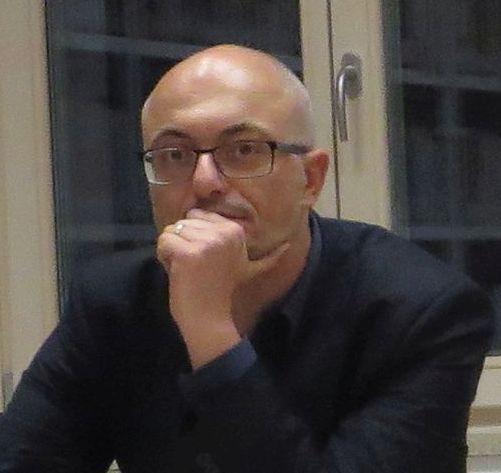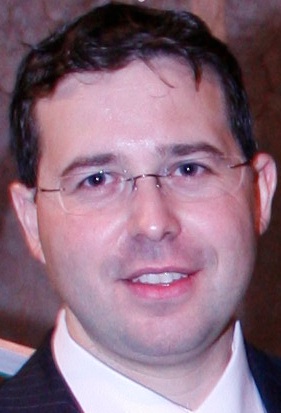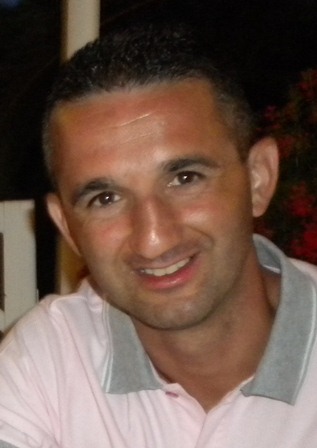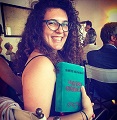Studying at the University of Verona
Here you can find information on the organisational aspects of the Programme, lecture timetables, learning activities and useful contact details for your time at the University, from enrolment to graduation.
Academic calendar
The academic calendar shows the deadlines and scheduled events that are relevant to students, teaching and technical-administrative staff of the University. Public holidays and University closures are also indicated. The academic year normally begins on 1 October each year and ends on 30 September of the following year.
Course calendar
The Academic Calendar sets out the degree programme lecture and exam timetables, as well as the relevant university closure dates..
| Period | From | To |
|---|---|---|
| Sem 1A | Sep 23, 2019 | Oct 31, 2019 |
| Sem 1B | Nov 11, 2019 | Jan 11, 2020 |
| Sem 2A | Feb 17, 2020 | Mar 28, 2020 |
| Sem 2B | Apr 6, 2020 | May 30, 2020 |
| Session | From | To |
|---|---|---|
| Sessione d'esame invernale | Jan 13, 2020 | Feb 15, 2020 |
| Sessione d'esame estiva (gli esami sono sospesi durante la sessione di laurea) | Jun 3, 2020 | Jul 25, 2020 |
| Sessione d'esame autunnale | Aug 24, 2020 | Sep 19, 2020 |
| Session | From | To |
|---|---|---|
| Sessione di laurea estiva | Jul 6, 2020 | Jul 11, 2020 |
| Sessione di laurea autunnale 19-20 | Nov 2, 2020 | Nov 7, 2020 |
| Period | From | To |
|---|---|---|
| Festa di Ognissanti | Nov 1, 2019 | Nov 1, 2019 |
| Sospensione delle lezioni | Nov 2, 2019 | Nov 2, 2019 |
| Festa dell'Immacolata | Dec 8, 2019 | Dec 8, 2019 |
| Vacanze di Natale | Dec 23, 2019 | Jan 6, 2020 |
| Vacanze di Pasqua | Apr 10, 2020 | Apr 14, 2020 |
| Festa della Liberazione | Apr 25, 2020 | Apr 25, 2020 |
| Festa del lavoro | May 1, 2020 | May 1, 2020 |
| Sospensione delle lezioni | May 2, 2020 | May 2, 2020 |
| Festa del Santo Patrono | May 21, 2020 | May 21, 2020 |
| Sospensione delle lezioni | May 22, 2020 | May 23, 2020 |
| Festa della Repubblica | Jun 2, 2020 | Jun 2, 2020 |
| Vacanze estive | Aug 10, 2020 | Aug 15, 2020 |
Exam calendar
Exam dates and rounds are managed by the relevant Culture and Civilisation Teaching and Student Services Unit.
To view all the exam sessions available, please use the Exam dashboard on ESSE3.
If you forgot your login details or have problems logging in, please contact the relevant IT HelpDesk, or check the login details recovery web page.
Academic staff
 giovanni.bernardini@univr.it
giovanni.bernardini@univr.it
 paolamaria.caleffi@univr.it
paolamaria.caleffi@univr.it
 ariel.caputo@univr.it
ariel.caputo@univr.it
 andrea.capuzzo@univr.it
andrea.capuzzo@univr.it
 marco.carradore@univr.it
marco.carradore@univr.it
 rossana.cotroneo@univr.it
rossana.cotroneo@univr.it
 paolodalben@tin.it
paolodalben@tin.it
 sara.fontana@univr.it
sara.fontana@univr.it
 maxclaudiogallo@gmail.com
maxclaudiogallo@gmail.com
 veronica.gobbato@univr.it
veronica.gobbato@univr.it
 diegogabriel.krivochen@univr.it
diegogabriel.krivochen@univr.it
 marco.menato@univr.it
marco.menato@univr.it
 giulia.pedrucci@univr.it
giulia.pedrucci@univr.it
 nicola.righetti@univie.ac.at
nicola.righetti@univie.ac.at
 alberto.scandola@univr.it
alberto.scandola@univr.it
Study Plan
The Study Plan includes all modules, teaching and learning activities that each student will need to undertake during their time at the University.
Please select your Study Plan based on your enrollment year.
1° Year
| Modules | Credits | TAF | SSD |
|---|
2° Year activated in the A.Y. 2020/2021
| Modules | Credits | TAF | SSD |
|---|
1 module to be chosen among the following3° Year activated in the A.Y. 2021/2022
| Modules | Credits | TAF | SSD |
|---|
2 modules to be chosen among the following| Modules | Credits | TAF | SSD |
|---|
| Modules | Credits | TAF | SSD |
|---|
1 module to be chosen among the following| Modules | Credits | TAF | SSD |
|---|
2 modules to be chosen among the following| Modules | Credits | TAF | SSD |
|---|
Legend | Type of training activity (TTA)
TAF (Type of Educational Activity) All courses and activities are classified into different types of educational activities, indicated by a letter.
Work and Communication Psychology (i) (2020/2021)
Teaching code
4S01887
Teacher
Coordinator
Credits
6
Also offered in courses:
- Work Psychology sc (p) of the course Bachelor’s degree in Communication Studies
Language
Italian
Scientific Disciplinary Sector (SSD)
M-PSI/06 - WORK AND ORGANIZATIONAL PSYCHOLOGY
Period
CuCi IIA, CuCi IIB
Learning outcomes
This course aims to introduce the framework of industrial and organizational (I/O) psychology as a field of study and of intervention. In particular, it focuses on the relationships between interpersonal interactions (individual differences and not), job characteristics and organizational variables. At the end of the course, the student should be able to recognize constructs such as Work Engagement and Burnout, apply organizational models such as Job Demands-Resources and Demand-Control, and evaluate behaviors such as Job crafting and Counterproductive Work Behavior. Regarding the application of the subject of study, the student should be able to understand and solve interactive cases based on empirical evidence in the field of occupational psychology.
Program
The programme of the course will include the following:
1) Theoretical introduction to Organisational Psychology
. Psychology and Organisational Psychology
. Taylorism and Fordism
. Hawthorne Studies
. Herzberg: job design and job enrichment
2) Human Resources and Organisational functions
. Organisational Development
. Selection and assessment
. Training and Orientation
. Organizational policies and Diversity Management
. Position assessment
. Performance assessment
. Potential assessment
3) Decisions in organisations
. The role of cognitivism in organisational functions
. Heuristics and bias applied to organisational environment
. Managerial decisions and risky decisions
4) The role of individual differences
. Socio-anagraphic variables: age, gender and work experience
. Questionnaires and tests
. Constructs' measurement
. Personality traits
. Inclination to risk
5) Main constructs of organisational psychology:
. Effort and Rewards
. Job Resources and Job Demands
. Exhaustion, Cinism, work disengagement
. Work Engagement
. Job Performance
6) Reference organisational models
. Demand Control model
. Effort-Reward Imbalance model
. Job Demands-Resources model
7) Organisational behaviour
. Definition of behaviour
. The Theory of planned behaviour
. Counterproductive behaviour
. Prosocial behaviour
8) Job Crafting and training technique
. Job Crafting training methods
. Resources-based training methods
. Coaching and mentoring
The educational methods adopted are different for the attendant and non-attendant student, due to the high level of innovation of the literature taken as a reference, which requires a continuous verification of the contents of the course.
For attendant students, the educational method used will be frontal lessons to deliver basic notions; key-categories and fundamental practical instruments. In addition to this, students will be asked to perform the reading of scientific papers, and writing of digital works related to this discipline.
Besides, also thanks to the e-learning platform of the University, we will propose refreshment readings and media related to the topics of the course.
During the first lesson, attendant students will receive the complete calendar of the educational activity provided with the dates and topics of the lessons. Timetable, room and any possible suspension for the Professor's academic reasons will be provided as well.
For non-attendant students, the educational method will be the support provided for by the Professor during his receiving hours.
Moreover, throughout the academic year, the Professor will be available to receive individual students, according to notices published on the website, which are updated continuously.
Further updates will be made available to the students promptly, also through dedicated notices.
Given the current emergency, the lessons are available via streaming via zoom: https://univr.zoom.us/j/3493331610
| Author | Title | Publishing house | Year | ISBN | Notes |
|---|---|---|---|---|---|
| Robert Kreitner, Angelo Kinicki | Comportamento organizzativo (Edizione 2) | Apogeo | 2013 | 9788850331468 | |
| Piergiorgio Argenteo e Claudio G. Cortese | Psicologia delle organizzazioni | Raffaello Cortina Editore | 2018 | 978-88-3285-017-8 | |
| Fraccaroli F. & Balducci C. | Stress e rischi psicosociali nelle organizzazioni, (Edizione 1) | il Mulino, Bologna | 2014 | 978-88-15-15071-4 |
Examination Methods
The assessment of learning outcomes involves an oral test and the production of an exam paper to be sent to the teacher before the exam. Exam and didactic methods adopted are different for attendant and non-attendant students, due to the high level of innovation of the literature taken as a reference, which requires a continuous verification of the contents of the course.
For attendant students, the didactic method used will be frontal lessons to deliver basic notions; key-categories and fundamental practical instruments. In addition to this, students will be asked to perform reading of scientific papers, and writing of digital works related to this discipline.
Besides, also thanks to the e-learning platform of the University, we will propose refreshment readings and media related to the topics of the course.
During the first lesson, attendant students will receive the complete calendar of the didactic activity provided with the dates and topics of the lessons. Timetable, room and any possible suspension for the Professor's academic reasons will be provided as well.
For non-attendant students, the didactic method will be the support provided for by the Professor during his receiving hours.
Both modalities require the development of an exam paper to be forwarded to the Professor one month before the oral test and evaluated as an integral part of the exam. The short term must be developed following the next guidelines: https://paper.dropbox.com/doc/Guida-Prova-dEsame--BJLuAB07ZRojeAflY_orygQEAQ-3qrT5LvNcHGjBauvO8618
(copy and paste the link in the address bar browser)
Moreover, throughout the academic year the Professor will be available to receive individual students, according to the times published on the website, which are constantly updated.
Type D and Type F activities
| years | Modules | TAF | Teacher |
|---|---|---|---|
| 1° 2° 3° | Lectures "Musiche/Culture/Civiltà" | F |
Vincenzo Borghetti
(Coordinator)
|
| 1° 2° 3° | Laboratory of Theatrical Criticism | F |
Simona Brunetti
(Coordinator)
|
| 1° 2° 3° | Worshop for cultral events | F | Not yet assigned |
| years | Modules | TAF | Teacher |
|---|---|---|---|
| 1° 2° 3° | 1969 – 2019; a cinquant’anni dalla strage di piazza fontana | F |
Renato Camurri
(Coordinator)
|
| 1° 2° 3° | Lectures "Musiche/Culture/Civiltà" | F |
Vincenzo Borghetti
(Coordinator)
|
| 1° 2° 3° | Laboratory of Theatrical Criticism | F |
Simona Brunetti
(Coordinator)
|
| 1° 2° 3° | Worshop for cultral events | F | Not yet assigned |
| years | Modules | TAF | Teacher |
|---|---|---|---|
| 1° 2° 3° | Marchants of Culture. Editorial distribution and promotion | F |
Federica Formiga
(Coordinator)
|
| 1° 2° 3° | Data elaboration laboratory | F |
Maurizio Boscaini
(Coordinator)
|
| 1° 2° 3° | Laboratory of radio languages | F |
Simona Brunetti
(Coordinator)
|
| 1° 2° 3° | Worshop for cultral events | F | Not yet assigned |
| 1° 2° 3° | The Role of Psychology in Human Resources: Professional interview | F |
Riccardo Sartori
(Coordinator)
|
| 1° 2° 3° | Psychology and communication: Innovation and creativity processes in the workplace | F |
Riccardo Sartori
(Coordinator)
|
| 1° 2° 3° | Sociology of Communication | F |
Lorenzo Migliorati
(Coordinator)
|
| 1° 2° 3° | Sociology of Mass Communication (p) | F |
Lorenzo Migliorati
(Coordinator)
|
| 1° 2° 3° | History of comics | F |
Claudio Gallo
(Coordinator)
|
| years | Modules | TAF | Teacher |
|---|---|---|---|
| 1° 2° 3° | Data elaboration laboratory | F |
Maurizio Boscaini
(Coordinator)
|
| 1° 2° 3° | Laboratory of radio languages | F |
Simona Brunetti
(Coordinator)
|
| 1° 2° 3° | Worshop for cultral events | F | Not yet assigned |
| 1° 2° 3° | Creative Writing Laboratory | F |
Veronica Gobbato
(Coordinator)
|
| 1° 2° 3° | Journalistic Writing Laboratory | F |
Andrea Capuzzo
(Coordinator)
|
| 1° 2° 3° | The Role of Psychology in Human Resources: Professional interview | F |
Riccardo Sartori
(Coordinator)
|
| 1° 2° 3° | Psychology and communication: Innovation and creativity processes in the workplace | F |
Riccardo Sartori
(Coordinator)
|
| 1° 2° 3° | Sociology of Communication | F |
Lorenzo Migliorati
(Coordinator)
|
| 1° 2° 3° | Sociology of Mass Communication (p) | F |
Lorenzo Migliorati
(Coordinator)
|
| 1° 2° 3° | History of comics | F |
Claudio Gallo
(Coordinator)
|
| years | Modules | TAF | Teacher |
|---|---|---|---|
| 1° 2° 3° | "Common world. 2022 Arendt Seminars | F |
Olivia Guaraldo
(Coordinator)
|
| 1° 2° 3° | Theatre with wheels | F |
Simona Brunetti
(Coordinator)
|
| 1° 2° 3° | Theatre with wheels - conferences | F |
Simona Brunetti
(Coordinator)
|
| 1° 2° 3° | Univero’ 2019 | F |
Tiziana Franco
(Coordinator)
|
Career prospects
Module/Programme news
News for students
There you will find information, resources and services useful during your time at the University (Student’s exam record, your study plan on ESSE3, Distance Learning courses, university email account, office forms, administrative procedures, etc.). You can log into MyUnivr with your GIA login details: only in this way will you be able to receive notification of all the notices from your teachers and your secretariat via email and also via the Univr app.
Graduation
Documents
| Title | Info File |
|---|---|
|
|
pdf, it, 263 KB, 09/02/22 |
List of thesis proposals
| theses proposals | Research area |
|---|---|
| Laureandi Scienze della Comunicazione: vademecum | Various topics |
Gestione carriere
Linguistic training CLA
Student mentoring
Student login and resources
Modalità e sedi di frequenza
La frequenza non è obbligatoria.
Maggiori dettagli in merito all'obbligo di frequenza vengono riportati nel Regolamento del corso di studio disponibile alla voce Regolamenti nel menu Il Corso. Anche se il regolamento non prevede un obbligo specifico, verifica le indicazioni previste dal singolo docente per ciascun insegnamento o per eventuali laboratori e/o tirocinio.
È consentita l'iscrizione a tempo parziale. Per saperne di più consulta la pagina Possibilità di iscrizione Part time.
Le sedi di svolgimento delle lezioni e degli esami sono le seguenti:
- Polo Zanotto (vicino si trova il Palazzo di Lettere)
- Palazzo ex Economia
- Polo Santa Marta
- Istituto ex Orsoline
- Palazzo Zorzi (Lungadige Porta Vittoria, 17 - 37129 Verona)

 0458028369
0458028369



























